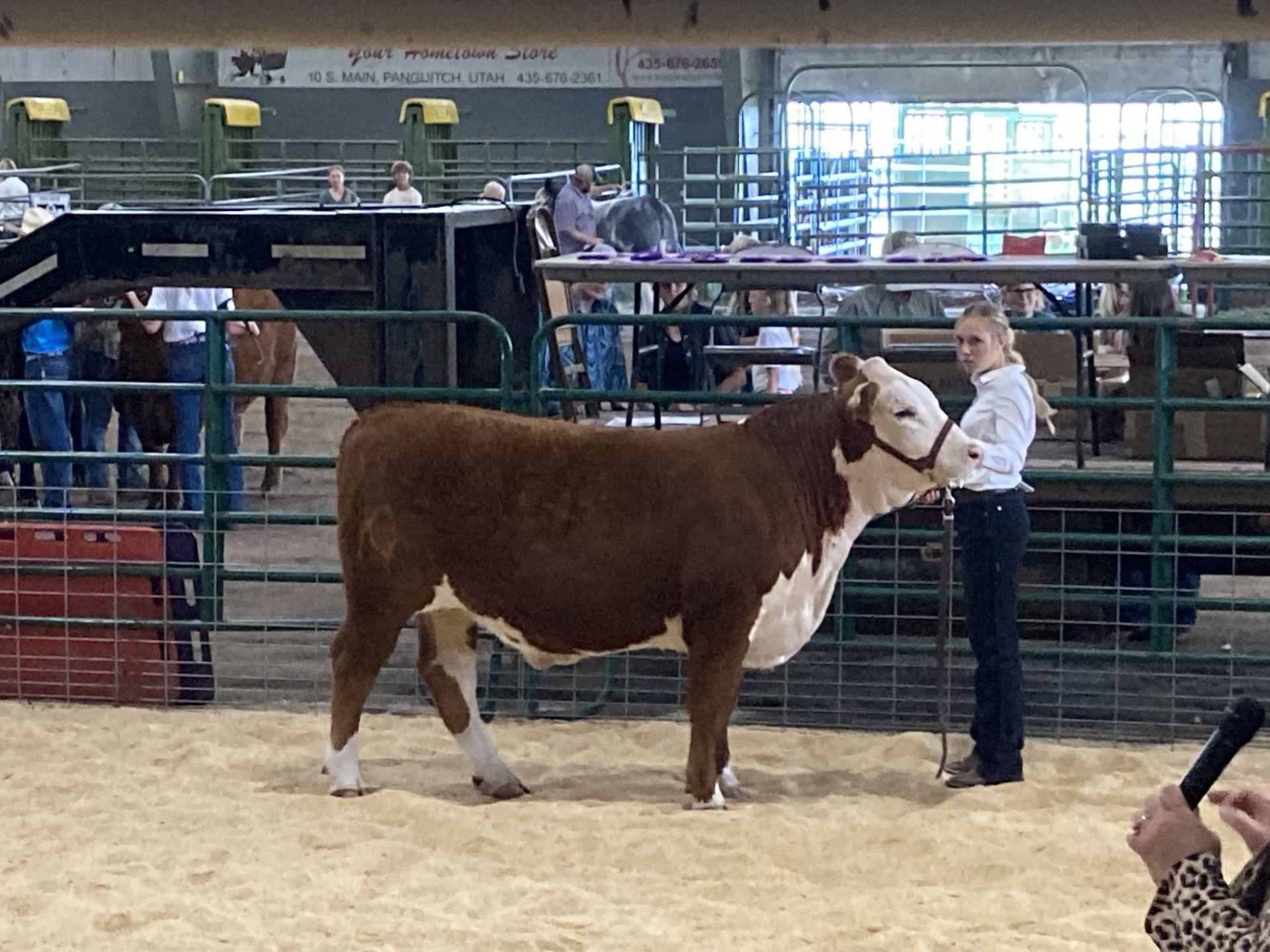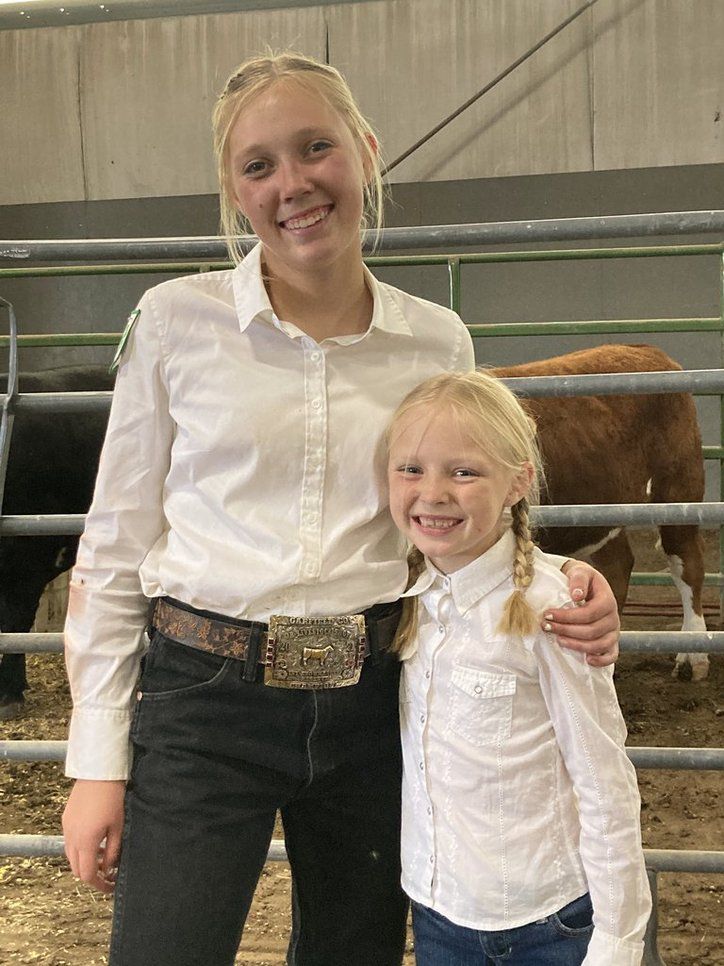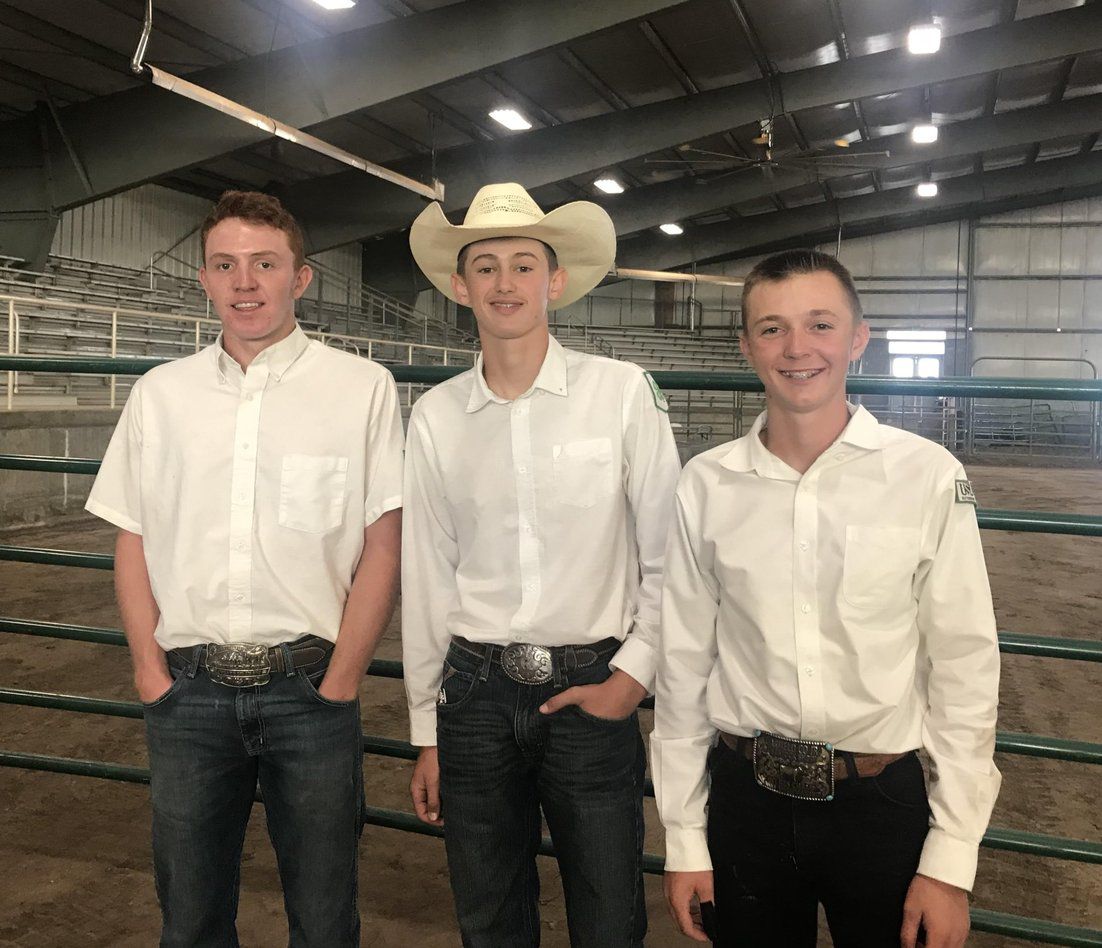Raised in a Show Barn
Author
Published
6/13/2024
Growing up and being the youngest of six, I was lucky to be raised in a show barn. Showing livestock had a big influence on me and my siblings during our youth. We learned many life lessons as well as a lot about ourselves. Raising our livestock projects involved lots of early mornings, late nights, and long hours to accomplish the care our animals required to get them ready for the show. Along the way there were victories, and defeats, smiles and tears, and gains and losses. These experiences were valuable lessons that taught us life skills that would help us to face future challenges.
Once you start showing livestock, it gets in your blood. This has enticed me to encourage my own children to show livestock to help them learn and grow from this experience. In honor of the Garfield County Junior Livestock Show that takes place each year during the Garfield County Fair, I would like to share with you some of the life lessons learned not only by myself and my kids, but by many other stock show kids as well.
Resilience
One of the first traits a stock show kid must possess is to be tough both mentally and physically. Training livestock to walk peacefully along the side of its owner can be a bit of a rodeo. The animals may kick, and they will definitely run from time to time. Each time that I let go of the halter and tumbled to the ground, embarrassed and a bit hurt and afraid, I was told to stand up, dust myself off, gain control, and try again. Resilience is a characteristic we all need to develop because sometimes we all fall, a bit hurt, embarrassed, and afraid, but we just need to get up and try again.

Responsibility
Animals rely on their caretakers to provide them with the proper nutrition and daily care. Caring for show animals teaches the importance of being consistent and dependable. If stock show kids fail to provide their livestock with feed, water, and the proper training, their animals will suffer and not look their best on show day. They may even become ill or even die.
Personal Values
Growing up around livestock gives youth a reason to wake up every morning knowing that there is another life depending on them. Through the long hours, days, and months ahead they learn the value of hard work and how it helps them to achieve their goals. Patience can be one of the toughest traits to possess while preparing livestock for the show. Training a large animal with a mind of its own to walk beside you with a halter is a challenge and takes trying again and again. The one-on-one time youth spend with their livestock teaches them to be compassionate. The caring relationship youth build with their livestock will help them to create meaningful connections with others.

Competition and Sportsmanship
After spending countless hours dedicated to an animal, it is human nature to feel pride in the show ring. The show ring can teach several life lessons and introduces youth to competition. Healthy competition teaches resilience which prepares youth for other real-life situations, the importance of sportsmanship, and how to win and lose gracefully. Showing livestock also teaches youth how to be internal competitors with themselves. They focus on making their animals better than they were the day before, which also challenges youth to become better versions of themselves.
Financial Savvy
Youth raising livestock learn about investments, how to keep track of expense records, and how to finance their project for the upcoming year. These are valuable skills that most people don’t learn until adulthood. Kids who are involved in the financial part of their project are better prepared when they enter the workforce, and they will better understand how to be more financially stable in the future. I am thankful that I was able to learn some financial skills at a young age, as they have helped me tremendously throughout my life.

Family Relationships
Showing livestock is not only a youth activity, it is also an activity for the whole family. Livestock showing has been a family tradition for me where I was constantly surrounded by my family. Families grow closer together as they work alongside each other. Family relationships made while showing livestock can be one of the greatest assets gained. Have you heard the saying, “It takes a village”? Well, in the livestock industry, this could not be truer. Parents are always the ones standing ringside. They hold the halters and extra spray bottles and wipe the surprise manure from an animal just before it enters the ring. They do whatever they can to help. If you are lucky enough to have a family like mine, it will be more than just parents helping. My family wouldn’t make it through show day if it weren’t for aunts, uncles, grandparents, and cousins, as well as family friends. It really does “take a village.”
Gratitude
No matter how much or how little effort the youth dedicate to their projects, they receive help from many people along the way: the parents, FFA teachers, and 4-H leaders who spend countless hours inspiring and coaching. And let’s not forget the generous community members who make time to come to the auction to purchase the youth’s finished product. All these play a vital role for the livestock show to be a success. I cannot stress enough how important it is to sincerely thank these mentors and supporters -- hopefully a lesson in gratitude that the youth will carry with them throughout life.
Showing livestock is one of the most fun and rewarding activities a young person can do. However, the benefits of showing livestock are something that are not often realized until later in life. I know because I have experienced that myself. These traits are not only important in the show ring, but in our daily lives as well. As you can see, showing livestock is much more than parading an animal around the show ring to win a shiny belt buckle and a blue ribbon. Along the way, strong character traits are created through working hard, playing fair, and appreciating every moment of the experience.
Want more news on this topic? Farm Bureau members may subscribe for a free email news service, featuring the farm and rural topics that interest them most!
